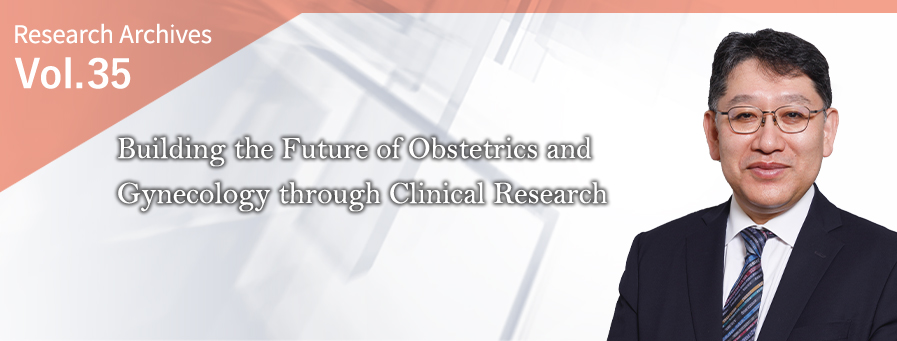
Department of Obstetrics and Gynecology, Graduate School of Medicine, Hokkaido University
Hidemichi Watari M.D., Ph.D. (Specialized Medicine)Specialized
Medicine
Academic & Professional Experience
- 1989 : Graduate from Hokkaido University School of Medicine (MD)
- 1989 : Resident, Department of Obstetrics and Gynecology, Hokkaido University Hospital
- 1995 : PhD, Hokkaido University Graduate School of Medicine
- 1996 : Research fellow, University of Pennsylvania, Center for Research on Reproduction and Women’s Health, Department of Obstetrics and Gynecology
- 2001 : Assistant Professor, Department of Gynecology, Hokkaido University Hospital
- 2006 : Lecturer, Department of Gynecology, Hokkaido University Hospital
- 2015 : Associate Professor, Department of Gynecology, Hokkaido University Hospital
- 2018 : Professor and Chairman, Department of Obstetrics and Gynecology, Hokkaido University Graduate School of Medicine and Faculty of Medicine1
Leading obstetric and gynecological care from both research and clinical perspectives
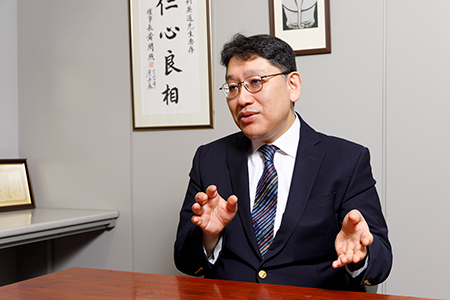
The Department of Obstetrics and Gynecology at Hokkaido University in Hokkaido, covering six tertiary medical areas. The Department of Obstetrics and Gynecology led by Professor Hidemichi Watari promotes cutting-edge medical care and clinical research as a central player in the maintenance and development of local obstetric and gynecological care, and is working on the development of highly specialized doctors.
The department’s main research themes are multicenter clinical trials aimed at the standard treatment of gynecologic cancer and clinical/basic research on gynecologic cancer. In clinical trials, Hokkaido University is playing a leading role in a randomized phase III trial to establish a standard lymphadenectomy for endometrial cancer at risk of lymph node metastasis in collaboration with medical facilities nationwide. (Figure 1). In the surgical treatment of endometrial cancer, a lymphadenectomy is often performed to simultaneously remove the lymph nodes around the cancer. However, it has not been examined in detail how the risk of subsequent metastasis and the therapeutic effect differ depending on whether the area to be excised includes the pelvic lymph node or the pelvic and para-aortic lymph nodes. In this clinical trial, it is planned to conduct clinical research on a scale of hundreds of people over a period of more than 10 years in cooperation with medical institutions nationwide. “The results of the research can be a factor in determining guidelines for future endometrial cancer treatment,” Professor Watari says. “Endometrial cancer is a high-profile disease, and the number of its patients are increasing year by year in Japan. I believe that contributing to the establishment and standardization of effective treatment methods will have a great impact.”
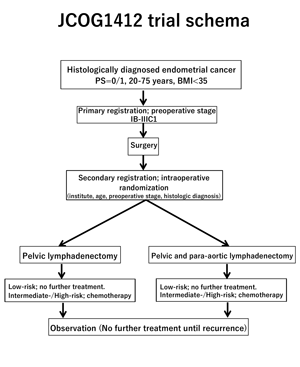
Meanwhile, in clinical and basic research on gynecologic cancer, various types of research are conducted on the early detection, diagnosis, and treatment of gynecologic cancer. The Department of Obstetrics and Gynecology at Hokkaido University Hospital provides medical care in a wide range of fields, including perinatal care, gynecological oncology, reproductive medicine, women’s health, and genetic medicine, and many of the graduate students who belong to the Department of Obstetrics and Gynecology at Hokkaido University work as obstetricians and gynecologists at the hospital. They often conduct research based on the clinical questions they have encountered in daily medical care, and make analyses using various methods, such as epidemiology-like social approaches, molecular biology techniques, and basic cell-level research. Currently, the Department of Obstetrics and Gynecology pursues (1) research on the early detection and treatment of cervical cancer and precancerous lesions, (2) research using organoid culture and PDX models, (3) research on the early diagnosis of gynecologic cancer using urinary exosome analysis, and (4) research on the significance of EMT and non-coding RNA in gynecologic cancer.
“It is very important to find clinical challenges in medical care. I also think that connecting these challenges to research results that will be useful for patients in the future is the great significance of learning in this laboratory,” Professor Watari says.
Students can choose a work style that suits their interests in a broad and profound area
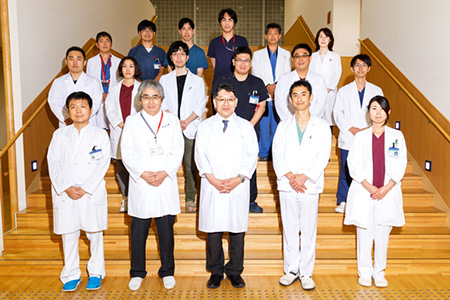
In recent years, the shortage of obstetricians and gynecologists has become a social problem, and maintaining a perinatal care system, especially in regional cities and depopulated areas, has become an urgent issue. Under these circumstances, the Japan Society of Obstetrics and Gynecology has set up the Obstetrics and Gynecology Future Committee to conduct activities aimed at recruiting young obstetricians and gynecologists. As a result, the number of obstetricians and gynecologists has been increasing little by little over the last few years. Professor Watari, who chaired the Obstetrics and Gynecology Future Committee from FY 2019 to FY 2020, talks about the appeal of obstetrics and gynecology as follows: “People tend to think that it’s a small area because it’s only for women, but in reality, it’s a specialist field involved in women’s lives from prenatal to the stage of old age. The target diseases are related to wide-ranging fields, including perinatology, reproductive medicine, gynecological oncology, women’s health, and medical genetics,” the professor says. “Students can choose a field that suits their individual interests and a work style depending on it. Support is provided for graduate students engaged in research, including financial support for conferences and thesis presentations, the promotion of research through active exchanges with basic research departments, and the active promotion of study abroad. I hope that as many students as possible will become leading clinicians with a research mind and global perspective.”
In 2008, Professor Watari contributed to the establishment of the Women’s Health Integrative Network of Doctors (WIND) as a successor of the Hokkaido University Obstetrics and Gynecology Office. It was the first time in Japan that a medical office was incorporated. Currently, approximately 160 doctors, mainly those who belonged to the Hokkaido University Obstetrics and Gynecology Office, are registered, and 30 medical facilities are registered as facility members. “I thought that incorporating the medical office that had until then been a voluntary organization would make it easier to gain understanding from people around us and would increase transparency. The method of developing medical professionals has not changed significantly from that when it was a medical office, and we are providing education tailored to individual interest and abilities,” Professor Watari says. WIND holds training for doctors specializing in obstetrics and gynecology, as well as hands-on seminars for students and graduate students to directly teach the techniques necessary for obstetrics and gynecology and to interact with young obstetricians and gynecologists, conveying the importance and appeal of obstetrics and gynecology.
“If the number of doctors aiming to work in obstetrics and gynecology increases, the clinical and basic research themes will expand, leading to more opportunities for doctors with diverse specialties to play an active role,” Professor Watari says. “The Department of Obstetrics and Gynecology is a rewarding clinical area, and students and researchers with various personalities from Japan and overseas gather in this department. I hope that as many students as possible will become leading clinicians with a research mind and global perspective.”
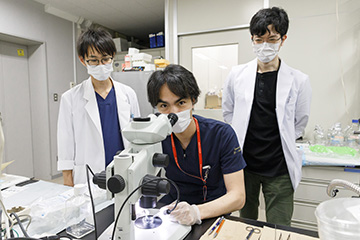
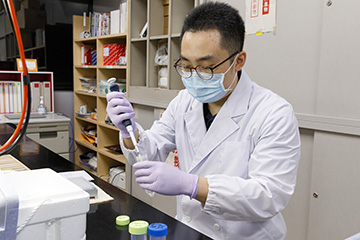
(Interviewed in October 2021)
Hands-on Seminar, where students learn the appeal of obstetrics and gynecology
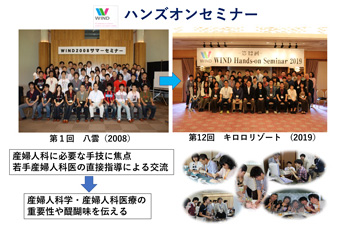
Shortly after its founding, WIND began holding an annual seminar featuring hands-on activities, which has been well received by medical students and residents. The Hands-on Seminar, a pillar of recruitment events, celebrated its 12th anniversary in FY 2019. The seminar aims to “raise students’ interest in obstetrics and gynecology by providing them with an opportunity to experience basic techniques” and “remove students’ anxiety by having them listen directly to obstetricians and gynecologists,” thereby contributing to increasing the number of doctors specializing in obstetricians and gynecologists.


